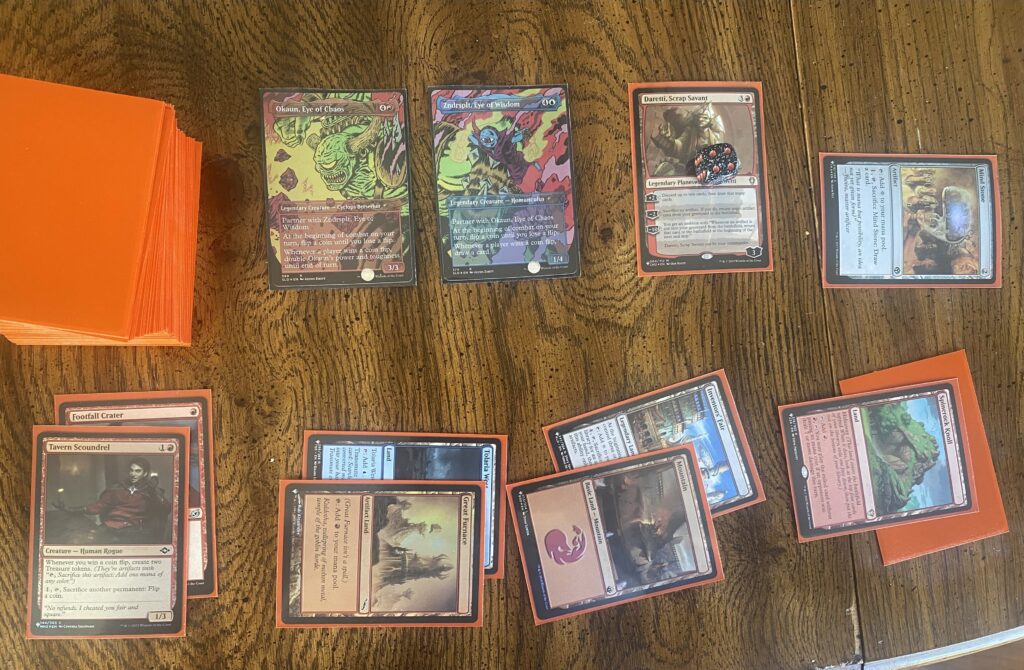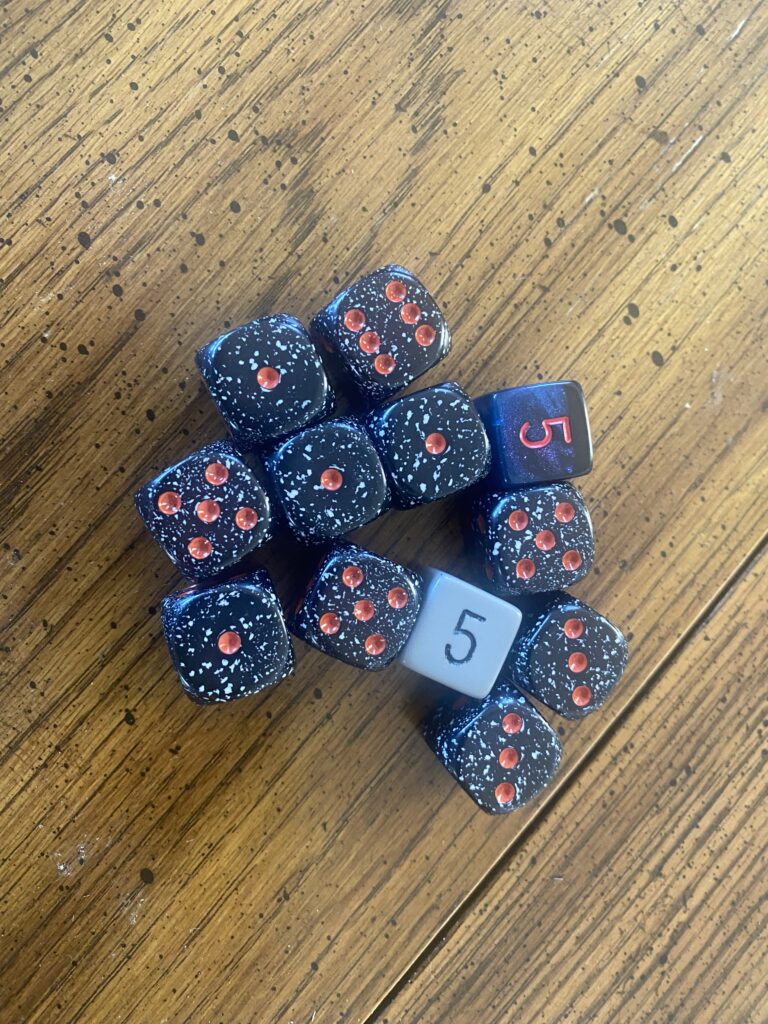Results Oriented Thinking
Written by: Tyler Statz
As our team was going through our yearly spring kick-off events, there were lots of discussions about what unique things each of us can bring to the table to help our team move forward. This got me thinking: “What does my background and interests bring to the table?” Looking around the room, I could point out so many hardworking and brilliant people who have tons of outdoor skills or can diagnose a vehicle problem by feel. Meanwhile, I am an introverted gamer who grew up on Vancouver Island (oddly, coastal forests and boreal forests need different knowledge…weird 🧐). However, throughout my gaming adventures, particularly Magic the Gathering, I have been exposed to a few decision-making concepts (some being particularly useful for dealing with negative outcomes) that I feel can be super helpful, not just for gaming, but for life in general.

As humans, we have been conditioned to believe in the idea that “all’s well that ends well.” This kind of logical fallacy is hardwired into the DNA of most living organisms, purely as a survival strategy. You eat a purple berry and feel fine (yep, those are good), but then you can eat a red berry and throw up everywhere, vowing to never eat them again. As a species, we learn quickly, something that allows us to readily adapt by sticking to rapidly acquired rules. However, in a modern world that’s driven by TikTok and instant news, making decisions and assumptions so quickly may no longer be the best strategy to employ in many situations.
Let’s Make a Bet
So, I’m going to offer you a deal. We will roll a die. If the number falls between 1 and 5, you win and I give you $100. If it’s 6, I win and you pay me $100. Seems like a great deal and the odds are amazing.
First roll, I win; you give me $100. Do you keep going?
Second roll, I win again, now I’m up $200.
In theory, you were supposed to have a huge advantage, but now I have won twice. More specifically, you have lost and that feels bad. Against all of the odds, you have lost $200.
So now, I offer it to you again. While the math remains the same, your brain may now be telling you that this is a bad thing to do.
The choice should be easy based on the obvious math, but your results-oriented brain might suggest you not take the bet. So, what was at one time a rational method of survival, has now become an irrational fallacy.
This method of thinking can be applied anywhere, including our job as archaeologists. Digging more frequently will find you more sites, so you start testing everything that you can see. Over your first shift, you don’t find anything more; In the long run, however, you will.
But, It Sucks to Lose
Yeah, it does. Often discussed as loss aversion, this is a pretty well-studied behavioural trait. Generally speaking, loss aversion refers to the idea that people would rather avoid loss than gain an equivalent amount. You may love winning some money from the lottery, but getting a traffic ticket for the same amount hurts a LOT more. This phenomenon helps to explain the prevalence of things like results-oriented thinking. Animals are hardwired to avoid pain, so any time there are negative outcomes at play, we tend to overweigh those outcomes.
Imagine you are starting a new fitness routine and it’s really working for you. You are about a month in and really seeing the results you want. Suddenly, a random accident happens and you pull a muscle or roll your ankle. Now, not only can you not do this new fitness activity, but you can no longer do your normal routine life activities.
So, what do you do? Do you quit this activity? Does this one bad experience prevent you from trying similar things? Maybe this just becomes another injury story that you can move on from and tell people about—just a bump in the road to your final goal.

Results-Oriented vs Learning From the Past
As many other people have probably done in their lives, when I was younger, I touched a hot cooking surface and burned my hand. Since that moment, I have not done that on purpose ever again (though, I continue to be a general klutz and burn myself anyway). Wait, but isn’t this the exact phenomenon that I have urging us all to avoid? How could I know not to do it after this one result?
Well yes, observant reader, thank you for the question, but at the same time, no. The real world is not a coin flip or a card game. We do not have the luxury of knowing all the odds and instead, we have to rely on past experience, probability, common sense, etc. It’s ok to learn from the past, but what we do want to avoid is having past results control your decisions. There is a big difference between seeing the dice roll above and feeling unlucky, and deciding that all dice only roll 6’s.
Bayesian Analysis
Bayesian analysis is used by statisticians to adjust subsequent behaviors by using prior results. For a crazy example, how might you find a sunken submarine or a plane that vanished off the radar? In the case of the USS Scorpion or Air France 447, the answer is Bayesian analysis.
Search crews start with all possible causes and all possible locations of the wreckage, then apply estimated probabilities to those causes and locations. The result of this task is a map (literally) of probabilities that point to the most likely locations to find the wreckage. A search path is constructed that starts with the highest probability points and works its way downward. From here, the path is constantly readjusted and recalculated as evidence is (or is not) found.
In practice, this can be applied to basically anything that is too complicated to determine with mere statistics like a dice roll. It may not seem easy at the beginning, but when you are making decisions, really think back and compare it to decisions you made in the past. How is this new decision similar? How is it different? How do these factors affect your path to your final decision?
If you are encountering something new, it’s ok to ask for help. Odds are there is someone around who has the experience that you are looking for, and even if it takes you longer to make the decision, asking for their assistance might help you. Another option? Look it up! We all know that the internet is a dark place, but it is a resource full of people’s lived experiences that you can mine to help inform your decisions.
All of this is to say that in the long run, results are telling. If you aren’t achieving your goals instantly, this should not be taken as a sign of failure. Rather, focus on your process, test your landforms, get a good sleep, keep hitting the gym when you can, etc. Don’t worry if you don’t find a projectile point on your first day, because it’s only by sticking to it that you can fulfill that goal. 💪🏼


